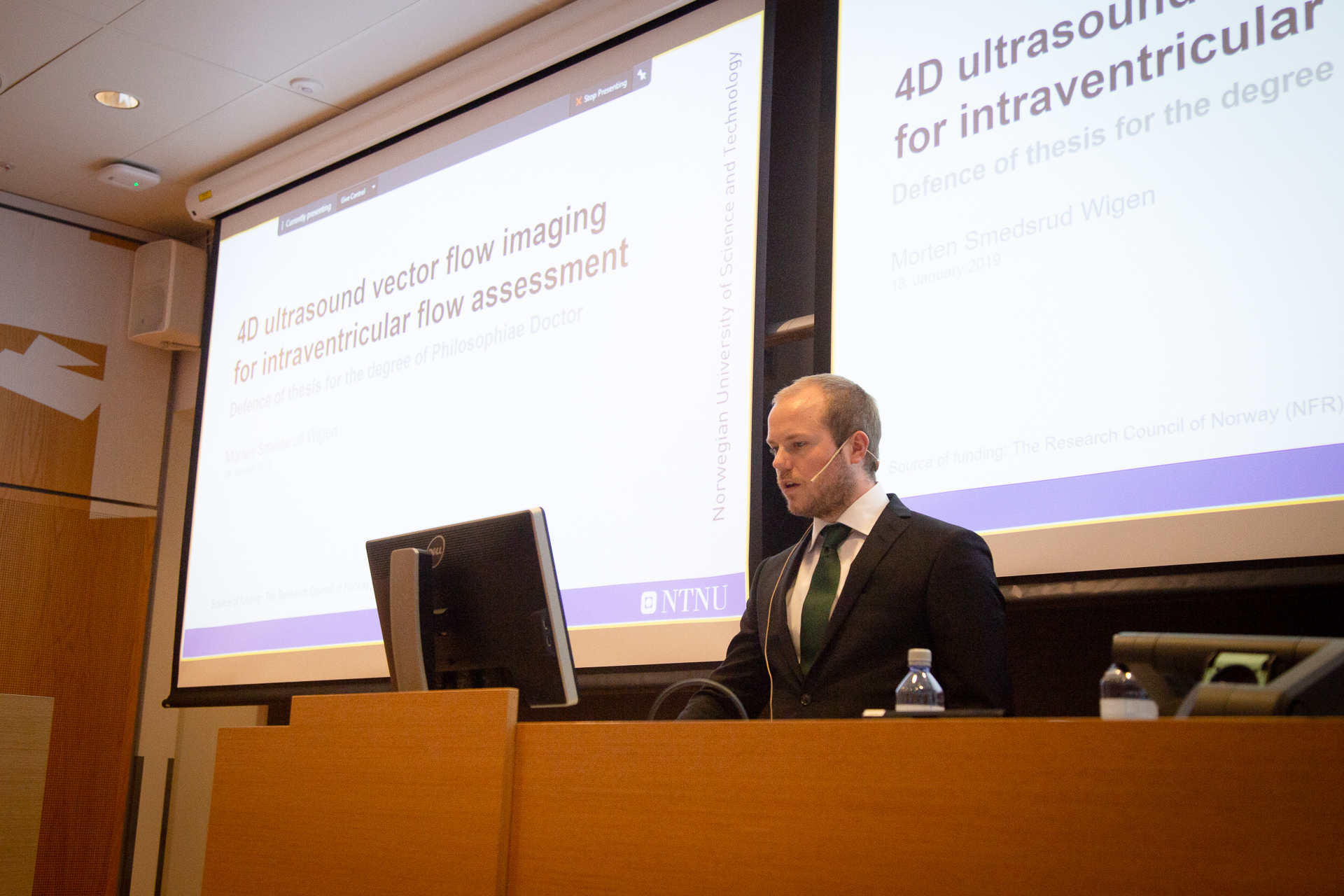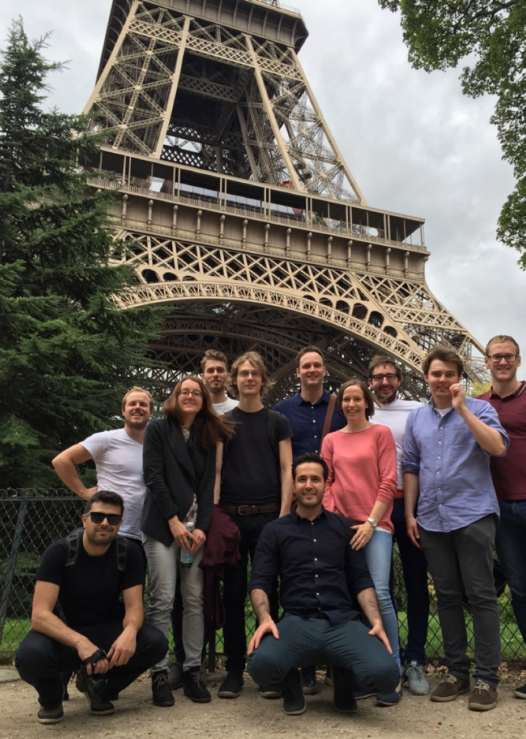
Foto: Karl Jørgen Marthinsen/NTNU
By Morten Wigen, postdoc researcher at the Institute for Circulation and Medical Imaging
Sweaty palms, dry mouth, itching collar from a tight tie, started struggling to keep focus after two hours of academic grilling. Barbeque season started early this year, I thought, feeling the heat from my opponents. Then the stress revealing words came: “I guess that was my last remark.” from the last challenger. 4.5 years summarized, questioned and discussed over three hours, and I was finally finished.
The idea of pursuing a PhD degree started to evolve during my master thesis project. This was my first experience of applying some of the accumulated knowledge from the years at the university, into a real project. There I developed a real-time computer program to synchronize ultrasound data with other physiological measurements (e.g. blood pressure, respiration pressure). The software was developed for research in the clinic at St. Olavs Hospital by anesthesiologists. I found the intersection between technology and medicine very interesting and motivating, and made me eager to continue within the field.
 My supervisor, Lasse Løvstakken, had been working on novel ultrasound methods for blood flow imaging the last years. At the end of my Diploma, he received a grant from the Norwegian research council (NFR) for a PhD and a Postdoc position to develop this technology further. The method he wanted to focus on was Vector Flow Imaging (VFI), which is an ultrasound imaging mode to measure and visualize complex blood flow patterns in e.g. the hearts ventricles. The hypothesis was that this technique could be used for deeper understanding and diagnosis of abnormal heart function. The research from the NFR-grant span out into three main paths: 2D VFI in pediatrics (children), 2D VFI in fetus imaging and 3D VFI on adults. The PhD project was targeted on the latter, which I was fortunate to get, with Lasse as my continued supervisor.
My supervisor, Lasse Løvstakken, had been working on novel ultrasound methods for blood flow imaging the last years. At the end of my Diploma, he received a grant from the Norwegian research council (NFR) for a PhD and a Postdoc position to develop this technology further. The method he wanted to focus on was Vector Flow Imaging (VFI), which is an ultrasound imaging mode to measure and visualize complex blood flow patterns in e.g. the hearts ventricles. The hypothesis was that this technique could be used for deeper understanding and diagnosis of abnormal heart function. The research from the NFR-grant span out into three main paths: 2D VFI in pediatrics (children), 2D VFI in fetus imaging and 3D VFI on adults. The PhD project was targeted on the latter, which I was fortunate to get, with Lasse as my continued supervisor.
In addition to the interdisciplinary perspective, I found the project very motivating due to its novelty, as no one had been working on the same topic before (3D VFI in the heart) and the use of a state-of-the-art ultrasound imaging system with all its technological capabilities.
Even though the end-goal of this work was clinical utility, the path towards it involved technological research. In my PhD this could be divided into three main parts:
- Algorithmic design and implementation for processing of VFI data involving programming in C++, CUDA, Matlab and Python.
- Investigation of ultrasound data acquisition techniques and setting this up on an ultrasound scanner.
- Validation of the method using: variations of ultrasound simulations, different self-made ultrasound phantoms using 3D printing, phase-contrast MRI (the current golden standard for complex blood flow imaging).
As seen above, taking a PhD gave me the opportunity to work within many different areas, and pushed me into new unknown paths along the way. This has also caused some detours, but I have learned that also those eventually have resulted in useful knowledge.
Another unique part of taking a PhD was its opportunity to attend and present my research at conferences. On these travels, I have meet many other researchers working on related topics from all around the world, and have also formed tight bonds within the group. These interactions with fellow researchers within and outside the lab have been essential to grow and mature in the field.
Related to presenting my work, the first paragraph in this post was slightly exaggerated. I actually enjoyed my defense, despite it being a long tiring day. The reason for that has been solely the drilling in holding presentations the last years. When I started my PhD, defending the thesis one day was a fearsome thought, but has transformed into something I am much more comfortable with.
Today I am working as a Postdoc on related topics in the same group at NTNU, but have moved back to my hometown Oslo. Thanks to CIUS, however, I am lucky to work from an office at our collaborating ultrasound groups department at the university here (UiO).
